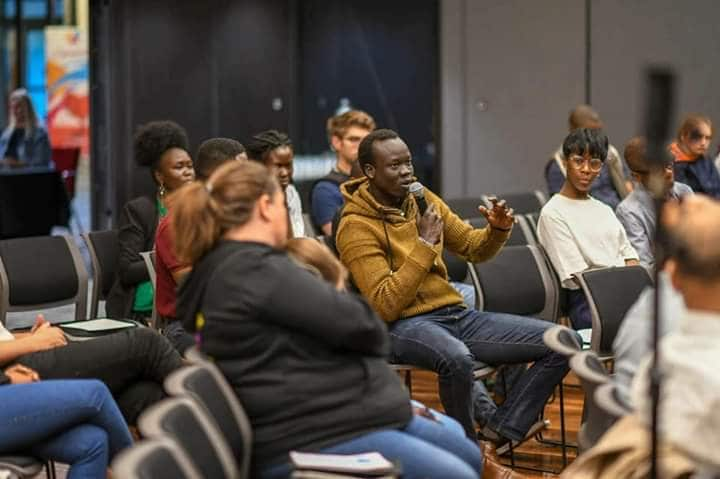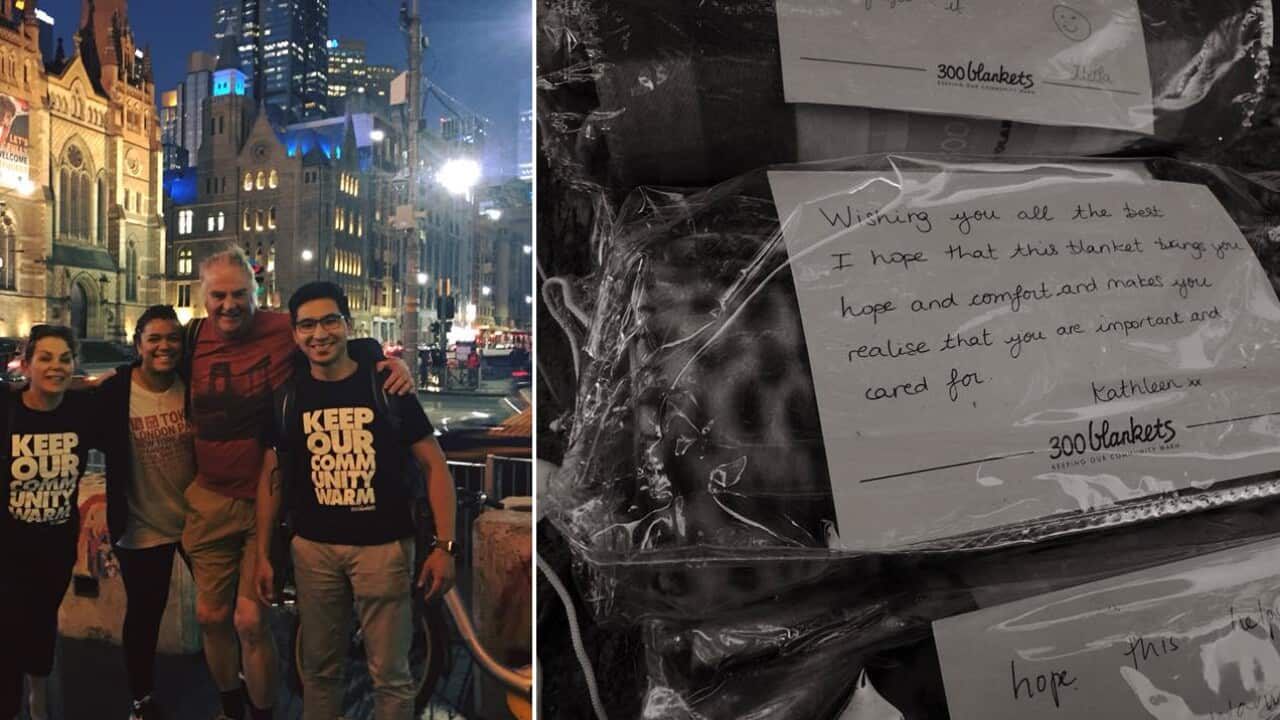Ethnic groups were caught up in the anti-immigrant rally on Melbourne’s St Kilda beach on January 5.
Queensland senator Fraser Anning attended the rally and voiced support for the Vietnamese community, who he said were being attacked by “African gangs”.
In an interview with SBS Cantonese, Deng Lual Denuun, a South Sudanese community activist, denied that conflicts between the two ethnic communities had intensified after a violent clash before Christmas.
“The so-called African gang issue is non-existent,” he said.
“They’re working so closely. They’ve been doing this for eight years and will continue to do even at times when issues like this arise.” An African youth gang calling themselves “Blood Drill Killers” (BDK) was believed to be involved in a street brawl outside a Vietnamese restaurant in St. Albans, a north-west Melbourne neighbourhood.
An African youth gang calling themselves “Blood Drill Killers” (BDK) was believed to be involved in a street brawl outside a Vietnamese restaurant in St. Albans, a north-west Melbourne neighbourhood.

Deng Lual Dununn spoke at a forum of Wyndham community network, a local African-Australian reference group in Melbourne's south-west. Source: Supplied; Deng Lual Dununn
Victoria Police confirmed arrests of a number of African-Australians aged 14-17, who are also linked to some other robbery and affray offences.
African crimes and those among teenagers have become the target of crime problems in Melbourne.
The word “African gang” has been seen repeatedly in media reports, a source for concern for the African community.
“This is not who we are,” said Nyok Gor, co-founder of South Sudan Australian Peace Initiative.
“We should not be victimized because of the behaviour of some young people.” The latest data of Victoria’s Crimes Statistics Agency (CSA) showed that for the year ending in September 2018, the number of Sudan-born unique alleged offenders accounted for 1.1 per cent in the total offender population in Victoria - compared to the result in the same period counted for the year 2017, it’s a 0.1 per cent increase; and the number of Sudan-born offenders under age 25 has dropped by 0.67 per cent.
The latest data of Victoria’s Crimes Statistics Agency (CSA) showed that for the year ending in September 2018, the number of Sudan-born unique alleged offenders accounted for 1.1 per cent in the total offender population in Victoria - compared to the result in the same period counted for the year 2017, it’s a 0.1 per cent increase; and the number of Sudan-born offenders under age 25 has dropped by 0.67 per cent.

Nyok Gor with other South Sudanese leaders at a national gathering, discussing peace advocacy work in Australia. Source: Supplied; Nyok Gor
War-torn countries such as Somalia, which makes up the second largest offender population among African countries, make up 0.2 per cent of total offenders and this number has been flat for a few years.
Australia-born unique alleged offenders are still the largest among the total offender population.
The shocking death of Israeli exchange student Aya Maasarwe last week questions Melbourne’s safety to the world level. The Safe Cities Index 2017 by the Economist ranks Melbourne as the No.5 safest cities in the world.
Bundoora, where Maasarwe’s incident took place, a suburb in Melbourne’s north-west, is the area with the most crimes in the city. According to CSA data, in the year ending in September 2018, people from African countries such as Sudan, Somalia, Ethiopia, Kenya, South Africa and Egypt, were involved in about 3.13 per cent of the total 62,603 incidents in the Melbourne’s north-west metro area.
According to CSA data, in the year ending in September 2018, people from African countries such as Sudan, Somalia, Ethiopia, Kenya, South Africa and Egypt, were involved in about 3.13 per cent of the total 62,603 incidents in the Melbourne’s north-west metro area.

The site where the body of Aiia Maasarwe was found is surrounded by mourners and flowers in Bundoora. Source: AAP
Other African countries were not specified in the data due to low numbers.
Criminologist says crime data on African groups are usually over-represented.
“People born in Sudan makes up only 0.1 per cent in the general population, but 1.1 per cent in the offending population. But you can’t stop there. You got to really taking more nuance to approach these statistics, to look at the age distribution of that population. There’s a much higher proportion of young people than the general Victorian population,” said Dr Karen Gelb from the University of Melbourne.
CSA said youth crime in Victoria has been going down over the past 10 years. Dr Gelb said media and political rhetoric has scapegoated the topic. It should not be a crisis and ethnic groups should not be singled out.
“If you’re labelling someone as a criminal, then they’re more likely to be a criminal,” said Dr Gelb.
“If you’re excluding people from society and stigmatising them, then you’re making it harder for them to be law-binding productive members of societies.”
Mr Gor said the African community was aware of youth crimes and has been working on addressing the issue. He said most of these kids came from prison or child protection centres.
Racial justice activist warns about conflicted language by the government on racial issue.
“That has had consequences. On one hand they’re creating this narrative, on the other hand, they now want to try to offer a half-hearted condemnation, when Neo-Nazis showed up at the St. Kilda rally, when they played a key role in creating the condition, in creating the fertile environment that is labelled all of these. It’s hypocrisy,” said Tim Lo Surdo from the Democracy of Colour, Australia’s first racial justice advocacy group led by people of colour.
Yet Mr Denuun and Mr Gor both say they appreciate some of Victoria’s efforts in promoting ethnic inclusion. The Victorian Multicultural Commission plans to allocate $8.6 million over the next two years to the African community in supporting their employment, education and health. But in regards to migration, he hopes to see the federal government lining up a more sustainable plan, instead of filling it up with problems and creating more division.

Members of Democracy in Colour, the first national racial justice advocacy group in Australia, during a doorlocking campaign in last year’s Victoria election. Source: Supplied; Tim Lo Surdo


